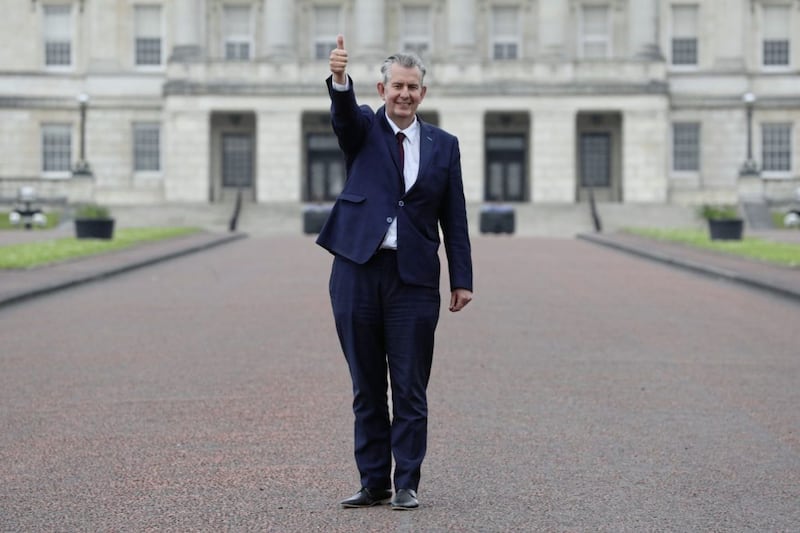EVEN if you are stretching yourself to be as charitable as possible it is difficult to view the British government’s proposed blanket amnesty as anything other than cynical, immoral, an assault on the rule of law and a retraumatising of victims and survivors.
The proposed slamming of the door on any albeit diminishing pathways to justice by way of eg prosecutions, inquests, the police ombudsman and judicial reviews looks even more unjust and hasty in the light of fresh developments - within days of the government’s announcement - in respect of the murders of Tom Oliver and Damien Walsh and the Omagh massacre.
They do not even have the guts to call it an amnesty - what everyone else calls it - in their unilateral “command paper” that constitutes an arrogant command to the bereaved and the rest of us, in Prime Minister Boris Johnson’s insulting and glib words in the House of Commons, “to draw a line under the Troubles”.
It is quite some feat for any government that would claim to be capable of listening to people, and to have engaged in a bona fide public consultation on the issue, to produce something that is opposed by all victims’ and survivors’ groups, all the Stormont parties, the Irish government and the Church of Ireland and Roman Catholic archbishops of Armagh and Primates of All-Ireland.
The amnesty proposal, cooked up to appease Tory backbenchers and right-wing media who are pressing the government to deliver on an ill-advised 2019 manifesto pledge to outlaw so-called vexatious prosecutions against army veterans, lacks moral integrity and detracts from constructive parts of the document, eg the reference to a possible cross-border university.
In the House of Commons, in the same breath that he made those offensive comments cited above, the PM referred to veterans facing “the threat of vexatious prosecutions”.
My Oxford dictionary tells me that the word “vexatious” has a specific meaning in law: “Of an action: instituted without sufficient grounds for winning, purely to cause trouble or annoyance to the defendant.”
It is appalling for the PM to suggest that the professionals in our independent Public Prosecution Service would institute vexatious prosecutions and surprising that neither in Westminster nor in the Assembly Boris Johnson appears to have been called out specifically on the slur that he has cast on the PPS and asked to withdraw it and to apologise.
We don’t have to be told how complex and sensitive the issue of addressing the past remains, some 12 and a half years after the comprehensive and overwhelmingly sensible Consultative Group on the Past (aka Eames-Bradley) proposals that never got a fair hearing because of just one particularly controversial recommendation.
Denis Bradley, the co-chair of Eames-Bradley, as well as Brian Rowan, the author and journalist, have separately argued powerfully for the legacy issue to be, under law, taken out of the hands of the local parties and the two governments – who have long demonstrated their congenital failure to deliver - and handed to international figures of distinction with no axe to grind.
Those with a better idea should put it forward but time is running out.
We are all paying a price for all the stalling, including victims and survivors and our younger citizens who did not experience the madness of those decades of violence.
There will come a time, in the interests of the common good, for a line to be drawn – accepted in Eames-Bradley - but surely the appropriate time for that would be at the conclusion of a time-limited process possibly undertaken by those international figures of unimpeachable standing.
This unilateral decree from London that shuts the door on any accountability by perpetrators of violence - and somehow countenances perpetrators meekly volunteering information - as well as being an insult to victims and survivors, is a rebuff to its supposed partner, the Irish government, and is, regrettably, a non-runner in its stated goal of promoting reconciliation.









